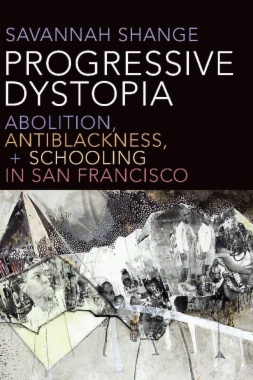San Francisco is the endgame of gentrification, where racialized displacement means that the Black population of the city hovers at just over 3 percent. The Robeson Justice Academy opened to serve the few remaining low-income neighborhoods of the city, with the mission of offering liberatory, social justice--themed education to youth of color. While it features a progressive curriculum including Frantz Fanon and Audre Lorde, the majority Latinx school also has the district's highest suspension rates for Black students. In Progressive Dystopia Savannah Shange explores the potential for reconciling the school's marginalization of Black students with its sincere pursuit of multiracial uplift and solidarity. Drawing on ethnographic fieldwork and six years of experience teaching at the school, Shange outlines how the school fails its students and the community because it operates within a space predicated on antiblackness. Seeing San Francisco as a social laboratory for how Black communities survive the end of their worlds, Shange argues for abolition over revolution or progressive reform as the needed path toward Black freedom.
- Cover
- Contents
- Acknowledgments
- 1. #OurLivesMatter: Mapping an Abolitionist Anthropology
- 2. “A Long History of Seeing”: Historicizing the Progressive Dystopia
- 3. “Why Can’t We Learn African?”: Academic Pathways, Coalition Pedagogy, and the Demands of Abolition
- 4. The Kids in the Hall: Space and Governance in Frisco’s Plantation Futures
- 5. Ordinary Departures: Flesh, Bodies, and Border Management at Robeson
- 6. Black Skin, Brown Masks: Carceral Progressivism and the Co-optation of Xicanx Nationalism
- 7. My Afterlife Got Afterlives
- Appendix
- Notes
- References
- Index

